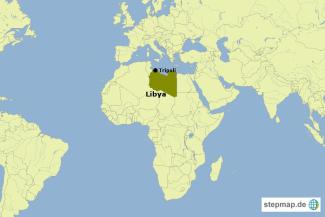Wedding grants
Love or money

In 2021, 25,000 Libyan couples who tied the knot received the equivalent of € 8,000 each from the government as a wedding gift. That added up to an expenditure of € 200 million by the government in an effort to encourage marriages. In 2022, the government intends to hand out a further € 200 million to another 25,000 marrying couples.
The Sports Ministry disburses the funds, and aims to make the application process quick and easy. “The administrative and financial procedures [should be] completed within 24 hours,” Prime Minister Abdulhamid Dbeibeh said when the programme was launched.
While the programme seems benign at first glance – who could be against supporting young love? – it has attracted strong criticism. For one thing, social commentators and women’s advocates worry that the hand-out will cause thousands of essentially fake marriages, or marriages built on shaky foundations, leading soon to a wave of divorces.
Indeed, the first signs of this are already visible. “We have noted many divorce cases filed by grant beneficiaries after very short marriages, which suggests that some marriages were agreed just to collect the grant,” says Fathia Jadidy, a senior editor for the Libyan newspaper Sabbah.
Moreover, critics worry that poor families wishing to cash in will push under-age daughters into unwanted marriages. “There are serious risks that very young girls will marry just to get the grant,” says Arwa Alghoul, a psychologist. She adds that couples in this category might forge documents to show that under-age brides are 18 years old, the legal minimum for marrying.
In addition, critics say the programme wastes public money, because many couples who receive the grant would have married anyway.
For example, one couple in their twenties, who prefer to remain anonymous, say they decided to marry before they had even heard of the grant. But they are not complaining. “We can use the money to build our new life together, such as starting a small business and paying down some debts,” they say.
On the plus side, the grant can be useful to young couples in a country with high housing costs and high unemployment. “Despite the drawbacks, the grant programme has helped many serious couples to build their homes,” says journalist Jadidy.
Moutaz Ali and Amel Sabri are journalists in Libya.
ali.moutaz77@gmail.com













